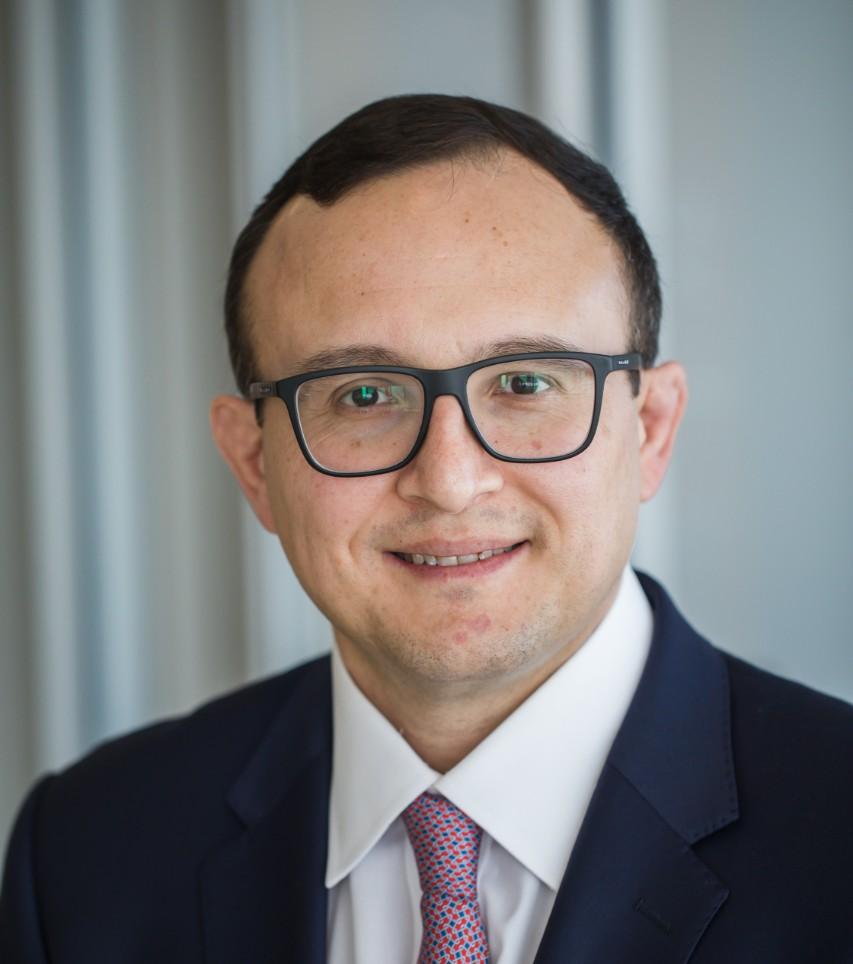
Faculty profile: Meet John Hughes
Faculty profile: Meet John Hughes
Having grown up in western Maryland, John Hughes feels a kinship with his new home at Lehigh University College of Health in Bethlehem.
He’s closer to family and old friends – about a three-hour drive – and Hughes is able to grow and share his research interests with the Lehigh College of Health community.
Hired as an associate professor in August 2021, Hughes left a position as associate research professor at Penn State University, his alma mater, where in 2011 he earned his Ph.D.
While his previous interest area was processive motor proteins, his current research focuses on methods for dependent data, Bayesian methods, statistical computing and collaborative work in several areas pertaining to health, e.g., spatial epidemiology, bioimaging, environmental.
Among the newer faculty members at Lehigh, we asked Hughes to tell us a bit about himself, his research and what he’s discovered so far about living in the Lehigh Valley.
How did you come to Lehigh?
Hughes: I had a research appointment at Penn State when Lehigh's College of Health began searching for statistics faculty. That's how I came to Lehigh. My goal was always to earn a tenured position at a good research university and, of course, Lehigh has a lot going for it besides its vibrant research culture.
Tell us about processive motor proteins.
Hughes: I’m primarily a methodologist - a methodologist who often enjoys applying statistical methodology to health-related data. Some of my early methodological work focused on processive motor proteins, which are ATP-powered biological nano-machines that transport large and/or massive cargos within eukaryotic (including human) cells and perform other functions as well (i.e. myosin motors power muscle contraction). My more recent research has focused on methods for dependent data. These methods have been applied in disease mapping, functional magnetic resonance imaging, growth models, smoking cessation, cartilage assessment, and measuring agreement. I got interested in motor proteins and dependent data as a Ph.D. student. As an assistant professor I left motor research so I could broaden my research on dependent data and devote more time to statistical computing.
What’s your personal vision and approach to your research and methods - how has this served you or is it a result of changing and adapting along the way?
Hughes: I view statistics (and allied fields like machine learning and data science) as a helping profession. My role is to help investigators from other fields of inquiry find meaning in their data. That’s how I think of my methodological research as well as my interdisciplinary research. When I’m developing a new statistical method I always have the statistically savvy non-statistician in mind. I aim to give those practitioners the best advice I can give them. And of course, I try to do the right thing when I’m the practitioner, i.e. when I'm the statistician on an interdisciplinary project. I also enjoy developing free, open-source statistical software. Here my attitude is the same: Strive to provide practitioners with high-quality tools.
What current classes are you teaching?
Hughes: I’m currently teaching a course on R programming and a course on nonparametric statistics. R is a wonderful language for data analysis and visualization and it’s also a good first language, i.e. a good language for learning how to program. And nonparametric statistical methods are quite flexible and broadly applicable. I think nonparametric methods, especially modern methods, should be among the tools in every applied statistician’s toolkit.
How has the Greater Lehigh Valley surprised you?
Hughes: I’m delighted by the easy access to a wealth of cultural activities. Recent highlights include a Beethoven concert at Allentown’s Miller Symphony Hall, a Tom Segura comedy show in Bensalem, a John Oates music show in Phoenixville, and a trip to the Barnes Foundation in Philadelphia.
Besides the Barnes, where else did you go in Philly?
Hughes: I spent the night in Chinatown during my time in Philadelphia. Across the street from the hotel was a place called Mr. Deer the Camp. It’s on Cherry Street. That place has a puzzling name but excellent bubble tea. If you like bubble tea, try their brown sugar bubble tea with frothy milk on top.
Any hobbies?
Hughes: My hobbies are yin yoga, reading, backpacking, traveling and watching movies/TV/YouTube. And I’m a foodie when I’m traveling. When I’m at home I keep my diet simple and healthful. Some of what I read in my free time intersects with my work to some extent, and the same goes for some of the YouTube videos I watch. Aside from that, my hobbies have nothing to do with my work. My favorite hobby is practicing yin yoga, but it’s not really a hobby, it’s my way of doing Zen meditation.
Yin is more a spiritual practice than a hobby. Traditional Zen meditation, which is called zazen, entails sitting still in one of a number of positions (lotus, half-lotus, etc.) for an extended period. This invariably causes me much discomfort. Yin yoga is the ideal alternative because yin is slow and meditative while requiring a change of position every 3-10 minutes. For me, yin is zazen as it should be - free of pain and distraction.
Cats or dogs?
Hughes: I have two adult male cats, Norman and Pinkerton. They were best friends at the foster home so I adopted them together. They’re nearly seven years old. Although I like dogs, I’m more of a cat person because cats tend to be considerably more laid-back and secure than dogs. If I had a dog, I’d feel guilty about leaving it alone for even a few hours since many dogs suffer terribly from separation anxiety.
